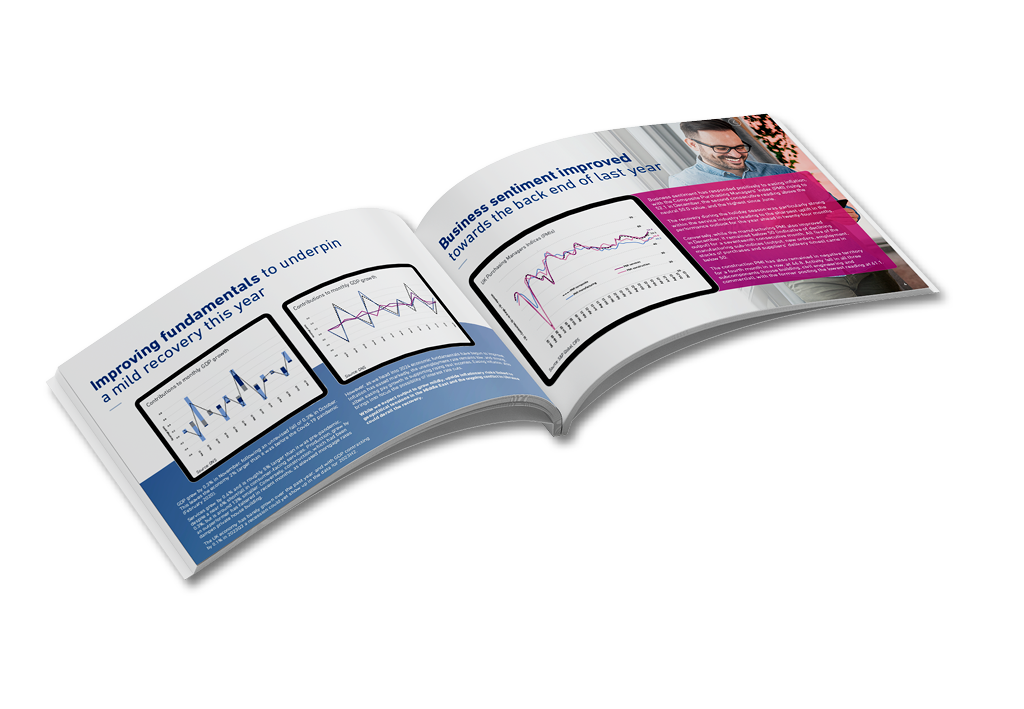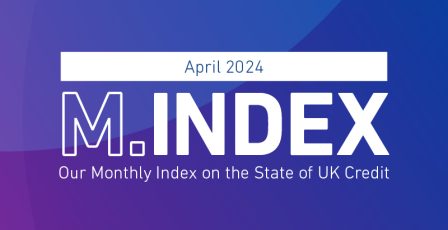Optimistic signs, but no certainty yet
Strong demand for business credit, facilitated by a growing alternative lending market and slowing business failure in certain sectors gives optimistic signs for the year ahead. Yet caution is the byword for 2024: with an unexpected jump in December’s inflation and the prospect of a general election, certainty for lenders remains in short supply.
In our latest SME Credit Index, we review the impacts of slower pay growth, falling unemployment, and the uptick in house prices on the SME landscape.
In this report, we cover:

SME credit trends to watch
We look at demand and supply, the role of alternative lenders, and credit performance highlights.
Macroeconomic outlook
How economic trends are shaping SME resilience.
SME demands
How demand for credit is reflected into lending and SME delinquency rates.
A sneak peek into...
Experian UK Small and Medium-Sized Enterprise (SME) Credit Trends Index

Gareth Rees, Commercial Credit & Risk Director, Experian
Foreword
Optimistic signs, but no certainty yet
After a bruising few years for UK SMEs, there are small yet cumulative signs of optimism. 2023 Q4 saw a gradual easing in inflation and the prospect of interest rate cuts.
Our data reveals a strong demand for business credit, facilitated by a growing alternative lending market and slowing business failure in certain sectors. Yet caution is the byword for 2024: with simmering tensions in the Red Sea, an unexpected jump in December’s inflation and the prospect of a general election, certainty for lenders remains in short supply.
Indications of a possible thaw ahead
With the UK economy frozen in a state of no growth and high inflation, 2023Q4 heralded a possible thaw. GDP grew by 0.3% in November, with a rise in both services and production, and business sentiment strengthened.
Slower pay growth and falling unemployment were matched by an overall falling trend in inflation, increasing the likelihood of interest rate cuts. Meanwhile with house prices once again looking more stable, and with a slight uptick in January ’24, coupled with easing mortgage rates and an upsurge in mortgage approvals, could indicate a rise in future borrowing.
Businesses themselves are worrying less about energy prices and inflationary pressures despite their anticipated increases, but more about falling demand for goods and services. Though insolvencies remain high, there are hopeful signs: for the first time since 2021 Q2 there were more business creations than closures.
Three SME credit trends to watch

Did you enjoy the read?
Download the full report
To find out more about identifying SME Credit Trends, download our report.

- Experian UK SME Credit Trends Index [March 2023]
- Experian UK SME Credit Trends Index [September 2023]









